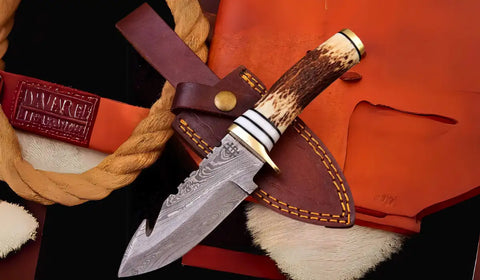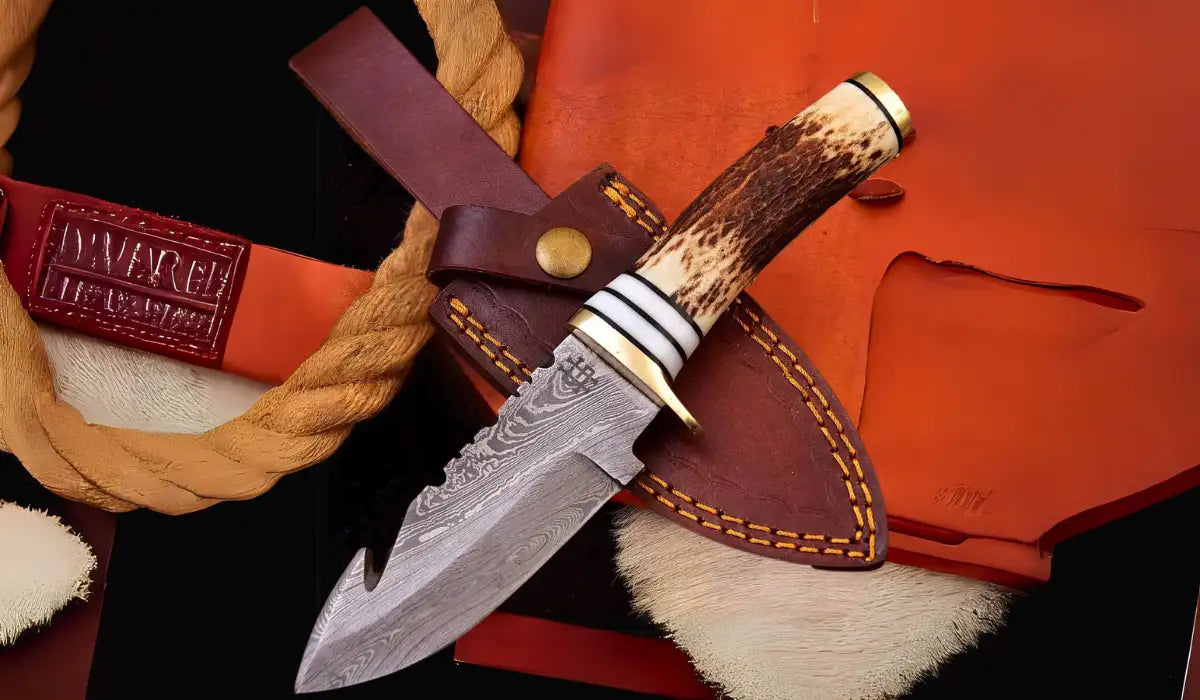Safety Tips for Knife Use to Keep Your Hunting Knife Sharp
Using a hunting knife efficiently requires not only skill but also an understanding of safety practices and maintenance tips. Proper knife care significantly prolongs the tool's lifespan and performance. In this article, we will outline essential safety tips for knife use while providing guidance on how to keep your hunting knife sharp and ready for your next outdoor adventure.
Understanding Knife Safety
Being aware of knife safety tips is crucial for any hunting enthusiast. Understanding how to handle your knife will prevent accidents and ensure that it lasts for many seasons. First and foremost, always maintain focus when working with knives. Distracted handling can lead to slips and injuries. Always use your knife on stable surfaces to avoid accidents.
Secure Your Grip
A proper grip is vital for safe knife handling. Use a firm grip to maintain control of the knife. When cutting or slicing, ensure that your fingers are not in the way of the blade. Holding your knife with the thumb and forefinger on the handle while keeping the other fingers wrapped securely around it can improve control during cutting tasks.
Be Mindful of Surroundings
Choose your work environment wisely. Always ensure that the area is clear of obstacles, and avoid working in cramped spaces. Never engage in knife use if you are tired or under the influence of drugs or alcohol, as this significantly increases the risk of accidents. A focused and alert mindset is essential when using a knife.
Regular Cleaning and Maintenance
To prolong the life of your hunting knife, regular cleaning and maintenance are essential. Not only does this keep your knife performing well, but it also contributes to safety during use. A clean knife works better, allowing cuts and slices to be made with less effort and reducing the risk of slips that could lead to injury.
How to Clean Your Knife
-
After each use, wash your knife immediately. Use warm, soapy water and a soft cloth.
-
Rinse the blade under running water to remove any debris, but never soak it, as moisture can promote rust.
-
Dry the knife thoroughly with a towel immediately after washing to prevent any oxidation.
Lubrication for Longevity
In addition to cleaning, regularly lubricating the moving parts of the knife can help prevent rust and ensure smooth operation. A small amount of mineral oil applied to the blade will protect against moisture, especially in humid environments. Be sure to check the manufacturer's recommendations for specific lubrication needs.
Sharpening Techniques
Keeping your hunting knife sharp is a key component of safety and effectiveness. A dull knife requires more force to cut, which can lead to slips and injuries.
Sharpening Your Knife
-
Use a whetstone or professional sharpening tool designed for your knife type. Follow the recommended angle to maintain the edge.
-
Make sharpening a routine task, checking the knife's sharpness before heading out, especially after heavy use.
-
A sharp knife dramatically reduces the chances of accidents; it's counterintuitive, but dull knives can be more dangerous.
Recognizing Wear and Tear
Constantly inspect your knife for signs of wear and tear. Look for nicks on the edge, rust spots, or other damages. Addressing these issues promptly can prevent larger problems down the line. If significant damage occurs, consider seeking expert help rather than attempting to fix it yourself.
Safe Storage Practices
When not in use, proper storage of your hunting knife is essential to its longevity and safety. A well-stored knife is less likely to become damaged or cause accidents.
Storing Your Knife
-
Keep your knife in a sheath or protective cover when not in use. This safeguards against accidental cuts and keeps the blade protected from the elements.
-
Store your knife in a cool, dry location away from moisture. Avoid damp areas that can promote rust.
-
Regularly check your knife's storage area for any hazards or obstructions that might lead to accidental access.
Conclusion: The Importance of Knife Care
Incorporating proper knife care and safety practices is essential for all hunting enthusiasts. By following these safety tips for knife use, you enhance not only your own safety but also the longevity and performance of your tool. Remember that a well-maintained knife can elevate your hunting experience significantly.
For a reliable and sharp hunting knife, consider tools like the Handmade D2 Steel Crocodile Dundee Camping Knife. Happy hunting and remember to prioritize safety!
Frequently Asked Questions (FAQ)
Here are some common questions regarding knife safety and maintenance:
How often should I clean my hunting knife?
It's best to clean your knife after every use to remove residues that may cause rust or damage to the blade.
What should I do if my knife dulls quickly?
If your knife dulls rapidly, consider your cutting surface, the knife's material, and ensure you are using it for its intended purpose.
Is it safe to use a knife with visible rust?
Using a rusted knife is not advisable, as it can impact performance and safety. Clean and lubricate your knife to remove rust, or replace it if necessary.


